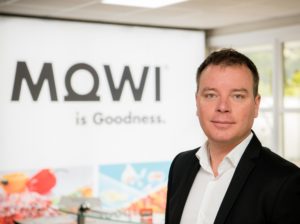Mowi and SSC agree to swap Harris sites

Two competitors in the Scottish salmon farming sector have reached an agreement to swap sites. The Scottish Salmon Company (SSC) and Mowi hope that consolidating their operations, located on the Isle of Harris in the Outer Hebrides, will help efficiency and sustainable health management.
Ownership of SSC’s Trilleachan Mor site on Loch Seaforth, on the east of Harris, and its Scaladale shore base will pass to Mowi. In return, SSC will take over Mowi’s Scotasay and Raineach sites, further south on the islands, and the Mowi shore base at East Loch Tarbert.
The handover and relocation of relevant infrastructure will be completed by March and all staff will be redeployed at different sites, Mowi and SSC say. By bringing their respective sites on Harris into management groups located closer together, the two companies aim to manage issues like sea lice control more efficiently.
Odd Eliasen, CEO, The Scottish Salmon Company said: “The nature of salmon farming means we operate sites in remote and often disparate locations. Working in partnership with Mowi, we both appreciate the opportunity to restructure the ownership of our sites around Harris that would not only create operational efficiencies but would be key for both companies to continue to improve health management of stock. Collaboration within the industry is vital to enable our long-term sustainable growth and deliver positive economic impact to the remote and rural communities in which we work.”

Ben Hadfield, Mowi Scotland’s managing director
Ben Hadfield, Mowi’s COO Farming Scotland, Ireland and the Faroes says: “This site exchange is a prime example of how positive collaboration between companies can lead to a win-win situation both from a fish health perspective and environmentally. It is encouraging to see agreements like this materialise and it certainly opens a door for future collaborations that contribute to the sustainable development of our sector.”
The Scottish Salmon Producers Organisation (SSPO) has welcomed the move. Dr Iain Berrill, Head of Technical at the SSPO, commented: “We know from many years of experience that coordination and collaboration by farming neighbours has an incredibly beneficial impact on fish welfare. This leads not only to improved health for our fish, but also supports us in meeting our responsibility to look after the environment in which we farm.”
Richard Davies of the Outer Hebrides Fisheries Trust (OHFT) comments: “Whilst we would prefer biological separation of farmed fish from the wild to eliminate risk of lice or disease transmission, consolidating sites like this should be a step in the right direction in reducing risks where they currently exist. It will make our role of monitoring impact on wild fish and communication easier and, in theory, it will make co-ordinated treatment easier for the operators. Salmon farms have a duty not to jeopardise wild fish populations and OHFT look forward to seeing the operators involved in the site exchange initiative demonstrating the positive environmental outcomes.”

